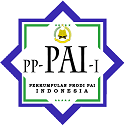The Relevance of Islamic Character Education According “The 7 Habits of Highly Effective People” Book
Abstract
Keywords
Full Text:
90-101References
A Shibley & JA Fusaro. (2004). Utilizing Covey’s Seven Habits od Highly Effective People to Implement No Child Left Behind. Leadership Review, 1.
Ahmad Amin. (1995). Etika (Ilmu Akhlak) (Cet. VII). Bulan Bintang.
Alaydrus, Y. M. (2018). Pendidikan Anak dalam Keluarga Berdasarkan QS Ibrahim: 37, QS Asshofaat: 102, dan QS Al-Baqarah: 132. Thesis. Universitas Islam Indonesia.
Annur, Y. F., Yuriska, R., Arditasari, S. T., & Bengkulu, U. (2021). Pendidikan karakter dan etika dalam pendidikan. 330–335.
Azlisham Abdul Aziz. (2021). Analysis of Literature Review on Spiritual Concepts According to The Perspectives of The Al-Quran, Hadith, And Islamic Scholars. TURCOMAT: Turkish Journal of Computer and Mathematics Education, 12(9), 3152–3159. https://doi.org/https://turcomat.org/index.php/turkbilmat/article/view/4790
Azmi, M. (2006). Pembinaan Akhlak Anak Usia Pra Sekolah: Upaya Mengefektifkan Nilai-Nilai Pendidikan Islam dalam Keluarga. Venus Corporation.
Darda, A. (2015). Integrasi Ilmu dan Agama: Perkembangan Konseptual di Indonesia. Jurnal At-Ta’dib, 1, 40.
Falah, S. (2020). Pendidikan Karakter Berbasis Keluarga pada Kisah Nabi Ibrahim dan Ismail. Ta’dibuna: Jurnal Pendidikan Islam, 9.1.
Fani Putri Amaliya, Saufitri Komalasari, & M. A. (2022). The Role of Islam in Shaping The Millennial Generation’s Morals and Character. JISMA: Journal of Information Systems and Management, 1(2). https://doi.org/10.4444/jisma.v1i2.10
Farihin, H., & Khasani, F. (2023). Etika Profetik Santri; Resepsi Hadis Pada Tradisi Pendidikan Pesantren. Jurnal Pendidikan Agama Islam, 9(2), 113–128. https://doi.org/10.18860/jpai.v9i2.24128
Hadis, A. (2021). Psikologi dalam Pendidikan. Alfabeta.
Haris, A., Ramadhan, S. A., & Mubarok, L. S. (2022). Rekonsepsi Pendidikan Karakter Berbasis Islam Pada Masyarakat Multikultural Singapura. J-PAI: Jurnal Pendidikan Agama Islam, 8(2), 96–107. https://doi.org/10.18860/jpai.v8i2.17437
Hasan, Z. (2017). Nilai-Nilai Pendidikan Islam pada Kisah Nabi Ibrahim. NUANSA: Jurnal Penelitian Ilmu Sosial Dan Keagamaan Islam, 14.2.
Hasnah Haron, Nurul Nazlia Jamil, & N. M. R. (2020). Western and Islamic Values and Ethics: Are They Different? Journal of Governance And Integrity, 4(1). https://doi.org/https://doi.org/10.15282/jgi.4.1.2020.5609
Hidayat, N. (2015). Metode Keteladanan dalam Pendidikan Islam. Ta’allum: Jurnal Pendidikan Islam, 3.2.
Ivan Fahmi Fadillah. (2023). Analisis Konsep Taqwa Dalam Al-Quran: Studi Terhadap Ayat-Ayat yang Menyebutkan Taqwa. AKADEMIK: Jurnal Mahasiswa Humanis, 3(3), 110–119. https://doi.org/https://doi.org/10.37481/jmh.v3i3.612
J. Mark Halstead. (2007). Islamic Values: A Distinctive Framework for Moral Education? Taylor & Francis Online: Journal of Moral Education, 36(3). https://doi.org/10.1080/03057240701643056
LJ Walker. (2003). Morality, Religion, Spirituality--The Value of Saintliness. Journal of Moral Education. search.ebscohost.com
Mahmudah, S. (2010). Interaksi Pendidikan Islam Dalam Al Qur’an (Kisah Nabi Ibrahim Dan Nabi Ismail). Diss. Universitas Muhammadiyah Surakarta.
Mahmudi, I. (2020). Evaluasi Pendidikan. Lintang Book.
Mansir, F. (2021). Aktualisasi Pendidikan Agama dan Sains dalam Character Building Peserta Didik di Sekolah dan Madrasah. 7(2), 87–93.
Maria Platt, Sharyn Graham Davies, & L. R. B. (2018). Contestations of Gender, Sexuality and Morality in Contemporary Indonesia. Taylor & Francis Online: Asian Studies Review, 42(1), 1–15. https://doi.org/https://doi.org/10.1080/10357823.2017.1409698
Mugeni, M. (2017). Konsep Etika Islam Hamka. UIN Sunan Gunung Djati Bandung.
Munawwar, S. A. S. and F. (2005). Metode Pendidikan Profetik dalam Al-Qur’an: Kajian Ayat-Ayat Kisah Nabi Ibrahim AS. Metode.
Nasir Hassan Wani. (2023). Peace in Islam in The Light of The Holy Quran and Hadith. Lectures: Journal of Islamic and Education Studies, 2(3). https://doi.org/https://doi.org/10.58355/lectures.v2i3.67
Nuraini & Eduwar. (2020). The Potentials of Goodness and Badness in Humans on The Qur’an and Hadith. BIRCI Journal: Budapest International Research and Critics Institute-Journal, 3(2). https://doi.org/https://doi.org/10.33258/birci.v3i2.883
Prasittikate, T. (2022). The Development Of A Learning Activities Handbook Based On The 7 Habits Of Highly Effective People For Improving Prathom 3 Students’ Leadership, Prasarnmit Demonstration School (Elementary). Srinakharinwirot University.
Putra, J. N. A., & Mutawakkil, M. A. (2020). Qada’ dan Qadar Perspektif Al-Qur’an Hadits dan Implikasinya Tehadap Pendidikan Agama Islam. J-PAI: Jurnal Pendidikan Agama Islam, 7(1), 61–71. https://doi.org/10.18860/jpai.v7i1.11232
Rosyadi, K. (2004). Pendidikan Profetik. Pustaka Belajar.
Rusdin Pohan. (2007). Metodologi Penelitian Pendidikan. Lanarka.
Saifullah Bhutto, Abdul Rehman Kaloi, & H. B. (2020). The Holy Quran A Guiding Source of Morality and Ethics. Habibia Islamicus (The International Journal of Arabic and Islamic Research), 4(1). https://habibiaislamicus.com/index.php/hirj/article/view/80
Siregar, A. F., Firdaus, A. Z., Setiyawan, A., Wulandari, D. A., Yunita, L., & Syifaaussakinah. (2024). The Influence of Flashcard on Arabic Learning Outcomes of Shorof Subject for Junior High School Students. Jurnal Al Bayan: Jurnal Jurusan Pendidikan Bahasa Arab, 16(1), 105–124. https://doi.org/10.24042/albayan.v16i1.21564
Siregar, A. F., Siti Nurhasana Mokodompit, Muhajir, & Nila Alfiroh. (2024). Test Analysis of Durus Al-Lughah Al-Arabiyyah Volume 1 by Imam Zarkasyi and Imam Syubani. Lisanudhad: Jurnal Bahasa, Pemberdayaan Dan Sastra Arab, 11(1), 153–175. https://doi.org/https://doi.org/10.21111/lisanudhad.v11i01.11427
Stephen R. Covey. (1997). The 7 Habits of Highly Effective People. Binarupa Aksara.
Sugiyono. (2017). Metode Penelitian Pendidikan Kuantitatif, Kualitatif, dan R&D. Penerbit Alfabeta.
Syed Shahid Ali. (2015). The Quranic Morality: An Introduction to The Moral-System of Quran. Islam and Muslim Societies: A Social Science Journal, 8(1). www.muslimsocieties.org
Thangthongmadan, S. (2021). 7 อุปนิสัยเพื่อพัฒนามนุษย์ให้มีประสิทธิผลสูง. 12(2), 5–13.
Umairah, A. R. and. (2017). Metode Qur’an dalam Pendidikan. Mutiara Ilmu.
Umi Latifah. (2022). Morality in Islamic View. ICIS 2022 The 5th International Conference on Islamic Studies.
Wardi, M., & Mubarok, G. (2022). Pendidikan Karakter Islami Dalam Tradisi Nyabis Masyarakat Madura. 8(2), 76–84.
Widya Masitah. (2019). Morality in Islam. Proceeding International Seminar on Islamic Studies.
Yaktavong, T. (2021). The Measurment Of 7 Habits Of Highly Effective People, Casual Factor, and Work-life Balance Of Private Organization Employees. Srinakharinwirot University.
DOI: https://doi.org/10.18860/jpai.v10i2.25276
Refbacks
- There are currently no refbacks.
Copyright (c) 2024 Amy Fitriani Siregar, Ismi Laela Asyiaty, Bustanil Ilmi Agustin, Nur Hidayat, Alin Safaraz Himam

This work is licensed under a Creative Commons Attribution-ShareAlike 4.0 International License.
...............................................................................................................................................................
Editorial Office:
Fakultas Ilmu Tarbiyah dan Keguruan
Universitas Islam Negeri Maulana Malik Ibrahim Malang
Jalan Gajayana 50 Malang, Jawa Timur, Indonesia 65144
Phone (0341) 552398, Faximile (0341) 552398
E-mail: jpai@uin-malang.ac.id
...............................................................................................................................................................

J-PAI: Jurnal Pendidikan Agama Islam is licensed under a CC BY-SA 4.0.
...............................................................................................................................................................
Indexed by:

















